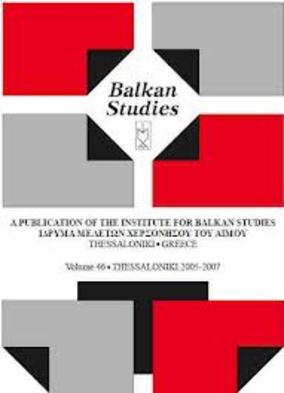Concerning Thrace : Adrianople in the eighteen-sixties
Part of : Balkan studies : biannual publication of the Institute for Balkan Studies ; Vol.41, No.1-2, 2000, pages 157-169
Issue:
Pages:
157-169
Section Title:
Articles
Author:
Abstract:
The Greek Consul in Adrianople P. Logothetis informed his Ministry inAthens about prevailing conditions in the vilayet of Adrianople in his report of17th October 1865. He begins this report with a statement on education inAdrianople giving a negative picture of jealousy and poorly understood antagonismbetween the local Greek citizens and those Greeks who were temporaryresidents in Adrianople, but receiving, at the same time, the brunt of thepatriotism among the Greeks of Adrianople. Logothetis cites the curriculum ofthe Greek schools and gives an analysis of all the schools, Greek, Bulgarian,Turkish, etc. in the city. Logothetis considered that the Greek women of Adrianoplewere distinguished by their mental agility, their intelligence and their aptitude for learning; the Ottoman women were more intelligent than theirhusbands and had a strongly assertive demeanour; the Ottomans, according toP. Logothetis, of Adrianople were distinguished from others of their racefirstly by their manly bearing and secondly by their love of all things Russian.Logothetis cites the presence in Adrianople of Slavs and Bulgarians aswell as their national activities during this critical period against the Hellenismof Thrace. Other subjects cited by Logothetis in his report were: methodsof governing; Greek elders; trade in Adrianople; export of carcasses and skins; and products of the region (rice, roses, wines, oak masts, olives etc.).
Subject:
Subject (LC):




